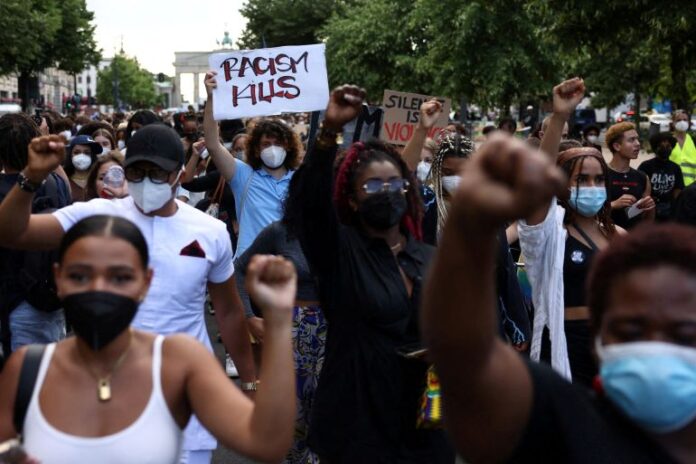The European Union said endemic discrimination against people of African descent is getting worse, with Black communities facing especially high hurdles to access jobs and apartments, according to Bloomberg.
The EU’s Agency for Fundamental Rights warned the prevalence of racism has risen in the last five years, compared with the same period when the survey was last published, with almost half the bloc’s people of African descent subject to discrimination based on skin color.
The Vienna-based agency’s study, Being Black in the EU, suggests the European Commission is drifting further from its goal of boosting integration and inclusion among the bloc’s 448 million inhabitants by 2025, as envisioned by the EU’s anti-racism action plan.
The report comes after a number of countries faced a reckoning in the wake of Black Lives Matter protests in 2020 that highlighted the disparities that Black people face, from heavy-handed policing to discriminatory recruitment practices. While companies have made an effort to hire more people from underrepresented groups, the survey reveals some of the barriers that Black people face in Europe.
“Racism remains pervasive and relentless,” said Michael O’Flaherty, director of the rights group. “Being confronted with the true scale is both shocking and shameful.”
Discrimination was especially high in Germany, Austria, Finland, and Denmark, where more than 60% of Black people have experienced racism, according to the survey of 6,700 people.
There are 15 million people of African descent estimated to be living in the EU, and the report pinpoints their common struggles. “Racial discrimination was experienced in all areas of life, with many respondents facing discrimination when seeking work and housing,” the report said.
While the labor participation rate among Black people is similar to society as a whole, there’s a stark difference when it comes to equality, the study said. For example, they’re more likely to be underpaid compared to others with the same qualification, or find jobs tied to temporary work contracts.
Housing discrimination is also widely prevalent, with about one in four people of African descent reporting that private landlords refused them as tenants at least once over the last five years. Data show the highest rates of housing discrimination in Finland, Austria, Belgium and Ireland.
While the EU Charter of Fundamental Rights mandates access to decent and affordable housing, almost a third of respondents said they had trouble making ends meet. People of African descent are twice as likely to suffer energy poverty that prevents them from heating homes in winter. Inequality in housing wealth is vast too; just 11% of the EU’s Black population owns property. That compares with 70% of the general population, according to the study.
Other results from the study show that:
- More than one in three Black men reported being injured through physical assault at least once in the last five years, with 16% saying they required medical assistance as a result.
- Almost three quarters of women and half of men say the prevalence of racism makes them anxious and depressed.
- One out of five fears leaving their home.
“These findings prompt reflection on the alarming lack of progress, despite binding anti-discrimination law in the EU since 2000,” O’Flaherty said, adding that EU states need to do more to protect Black communities.


